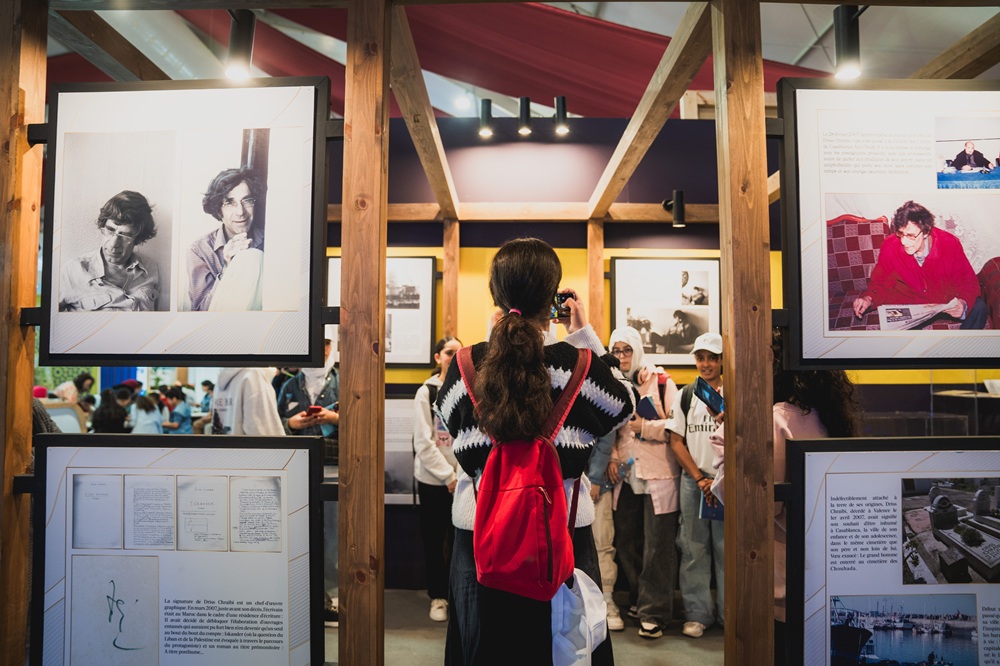As reclaiming personal migration stories becomes crucial in current societal discussions, Driss Chraïbi was celebrated at the 30th International Book and Publishing Fair. The commemorative day started with a communal read-aloud session and ended with a movie presentation. Additionally, beyond just organizing the event, planners aim to connect this homage to the imminent hundred-year mark since the author’s birth, which forms part of their larger initiative to ensure wide accessibility to his writings.
On Wednesday, novelists Zineb Mekouar and Mustapha Kebir Ammi jointly read excerpts from “Les Boucs” by Driss Chraïbi (1926-2007) at an event honoring the renowned writer. This gathering took place within the framework of SIEL 2025, the International Book and Publishing Fair currently underway in Rabat from April 18 to 27. The occasion included insights from academics like Kacem Basfao, personal reflections from Sheena Chraïbi—the author’s spouse—as well as comments from key figures such as Driss El Yazami, President of CCME, alongside various fellow authors. It served as a reflective platform celebrating one of Morocco’s seminal works addressing themes of migration between Morocco and Europe.
First published in 1955, this novel represents a pivotal moment in Maghrebian literature written in French and continues to be among the most significant works within Kateb Yacine’s body of writing. The celebration marking seven decades since its release is viewed by the Ministry of Youth, Culture, and Communication along with the CCME as an essential chance to introduce the author’s creations to every generation—from young readers to those familiar with his life and times.
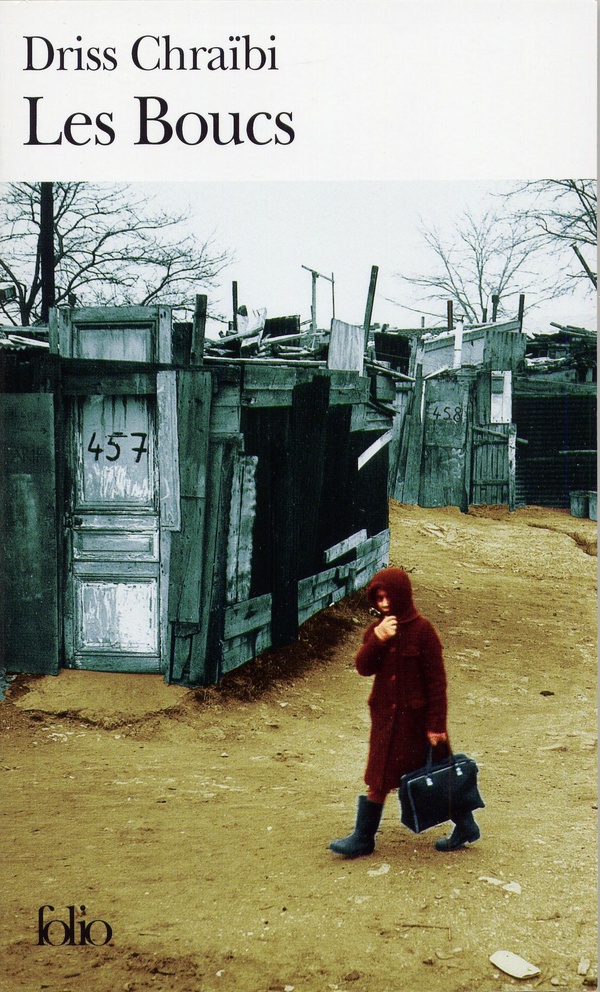
Author Zineb Mekouar commended Chraïbi’s work for its remarkable pertinence, evident not only in its literary approach but also in its exploration of the theme concerning the interaction with the ‘Other,’ especially within European contexts like France. “To me, Les Boucs stands out as an exemplary piece of global literature,” she stated. “Even now, we see this exclusion of different perspectives, and the tendency to speak on behalf of others, assuming we understand their experiences better than they do themselves—this body of work effectively counters such notions in numerous aspects.”
This imprisonment within media or political stories poses significant risks and forces our hand. In today’s society, Driss Chraïbi took the lead in addressing this critical demand for alternative perspectives through his writings—allowing him to be heard and thereby acting as a participant in his own environment instead of remaining a passive subject of Orientalist imagination.
Honoring Driss Chraïbi at SIEL 2025 and Beyond
Driss El Yazami similarly pointed out that “Les Boucs” stands among the most significant works in French literature addressing immigration. This novel unfolds during the tumultuous period marked by the Algerian War, intense anti-Maghreb discrimination, and pervasive sociopolitical constraints. Additionally, he mentioned that this book only saw an Arabic translation in 2021. El Yazami underscored its significance as a vital piece of culture contributed by Moroccans globally.
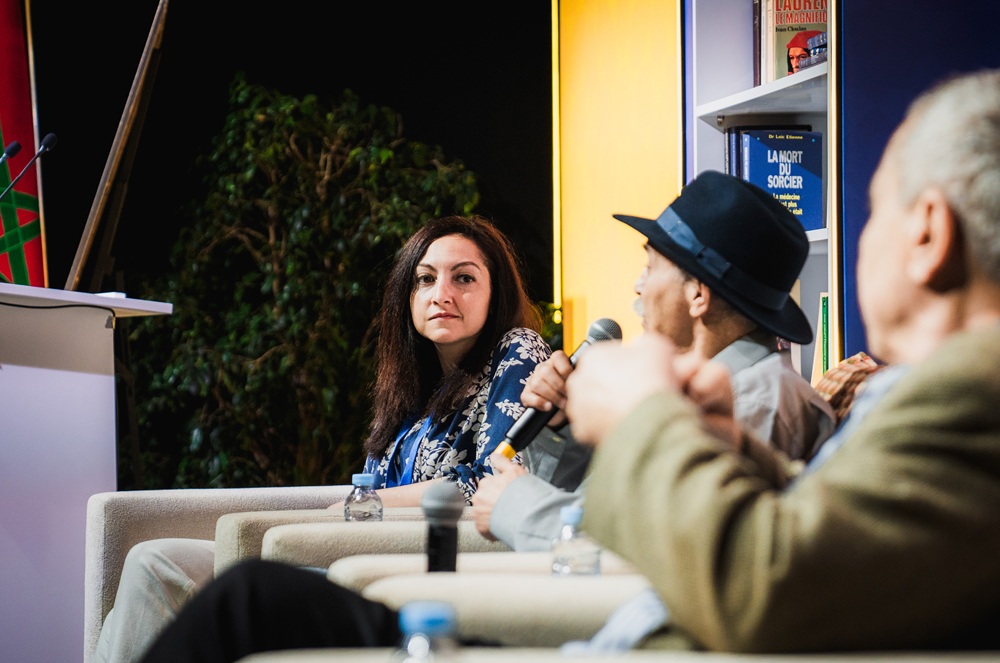
Zineb Mekouar, Kacem Basfoah, and Kebir Mustapha Ammi / Ph. CCME
At the shared exhibit area between the Ministry of Culture and the CCME during SIEL, a section was allocated to showcase works by Driss Chraïbi. The organizer, Kacem Basfao, mentioned that this effort forms part of a comprehensive strategy designed to promote literature accessible to everyone. “By uniting family members and thinkers, we aim to pay homage after someone’s death so as to introduce an author to people unfamiliar with their work,” he stated to LinksToday.online following the conclusion of the event. He added, “I believe such inclusivity has frequently been absent from commemorations honoring notable figures like Fatima Mernissi.”
“The inclusion of friends and family members in these tributes is crucial, and I believe it’s advantageous to also involve scholars, fellow authors, and thinkers,” he emphasized. However, to maintain this heritage, “we must discover an effective method to engage with fresh audiences—otherwise, these events might end up feeling like speaking only to those who already agree,” he noted.
That’s why we established the Driss Chraïbi space as an expansion of the combined booth for both the Ministry and the CCME—to engage younger audiences and familiarize them with an author they may not have encountered yet. This area has proven particularly popular amongst pupils, secondary school students, and those just starting their university journey; it presents excerpts from Chraïbi’s works such as texts, photographs, and fundamental aspects in a manner easily digestible for this demographic. Moreover, it inspires these young visitors to develop further interest, conduct deeper investigations, and perhaps—why not?—proceed to read his literature.
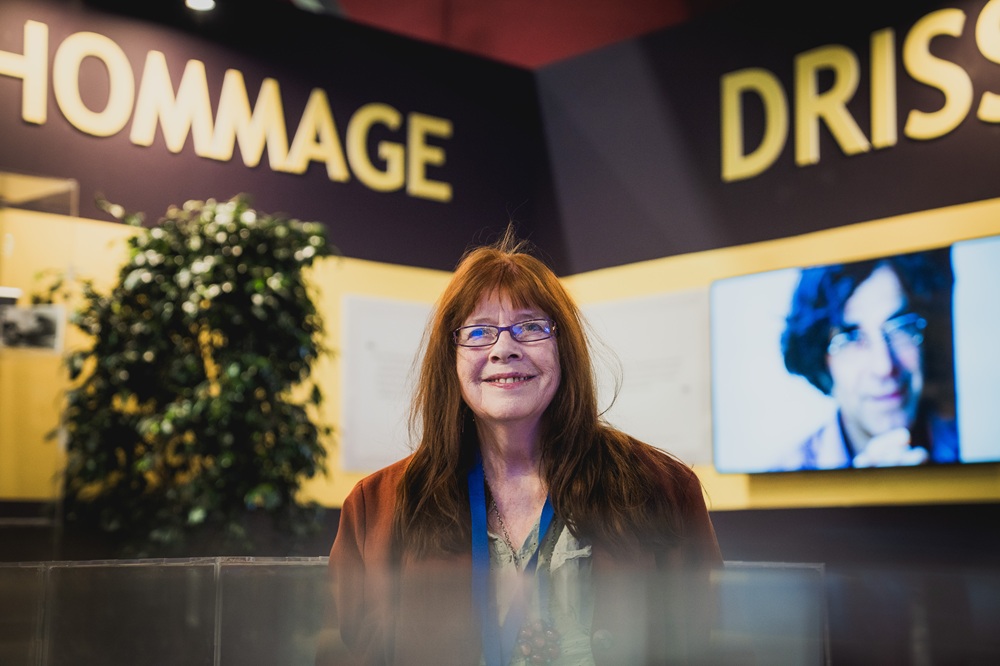
Sheena Chraïbi in the Driss Chraïbi memorial area at SIEL 2025 / Photo: CCME
For Basfao, «this is the entire point of the space and this tribute: that it be inclusive, open to all, and reflective of who Driss Chraïbi was — someone deeply engaged with his society and ahead of his time, in ways that feel more relevant than ever. This is especially true of Les Boucs, which addresses Maghrebian immigration in France, but also racism and violence at every level».
Indeed, the organizers affirm that Driss Chraïbi «is not an inaccessible author». Through this series of public events, they hope «to make sure that everyone — but especially young people — don’t feel intimidated by an author’s name, and are instead encouraged to explore his work, which offers a vast intellectual openness for self-development beyond the traditional academic route».
Heading Toward Chaâbi’s Centennial Celebration in 2026
This edition of SIEL, which specifically honors Moroccan authors living abroad, also marks the launch of a new initiative by the Ministry of Culture to translate the works of Moroccan writers around the world into Arabic and safeguard this literary heritage.
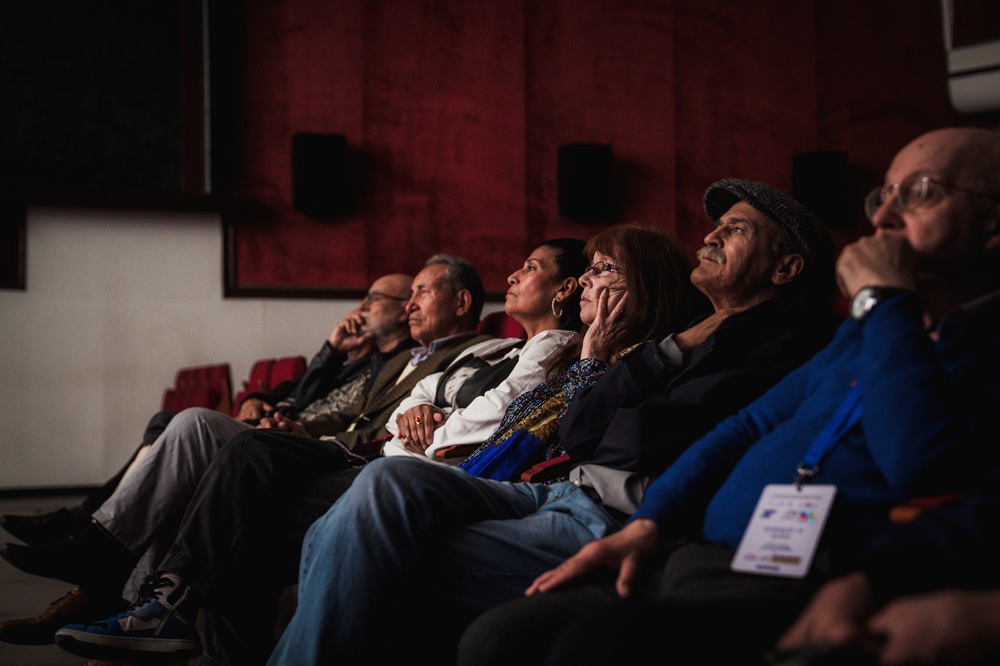
Projection of “Conversations with Driss Chraïbi” by Ahmed El Maanouni / Ph. CCME
A special screening was organized on the same day through the initiative of the CCME at the La Renaissance cinema, extending the tributes. This event was part of a retrospective featuring groundbreaking Moroccan films about migration. Attendees had the opportunity to watch “Conversations with Driss Chraïbi” (2007), directed by Ahmed El Maanouni, which was followed by a conversation involving Sheena Chraïbi and Kacem Basfao.
In anticipation of Driss Chraïbi’s hundredth birthday in 2026, Driss El Yazami revealed plans for an extensive commemoration. The event will feature an exploration of the author’s archival materials, engagements with his writings via readings and scholarly discussions, and contemplations on how he shaped debates surrounding identity, exile, and remembrance.

